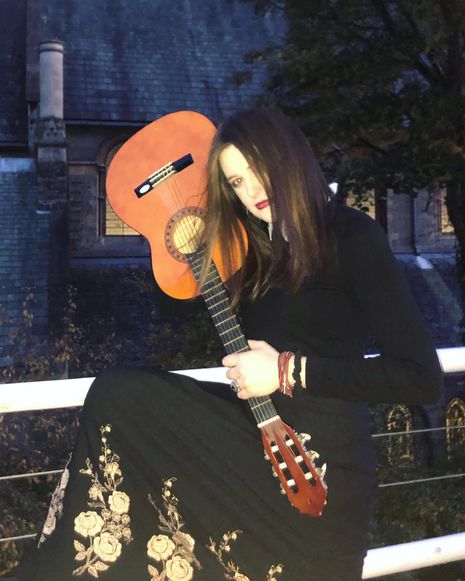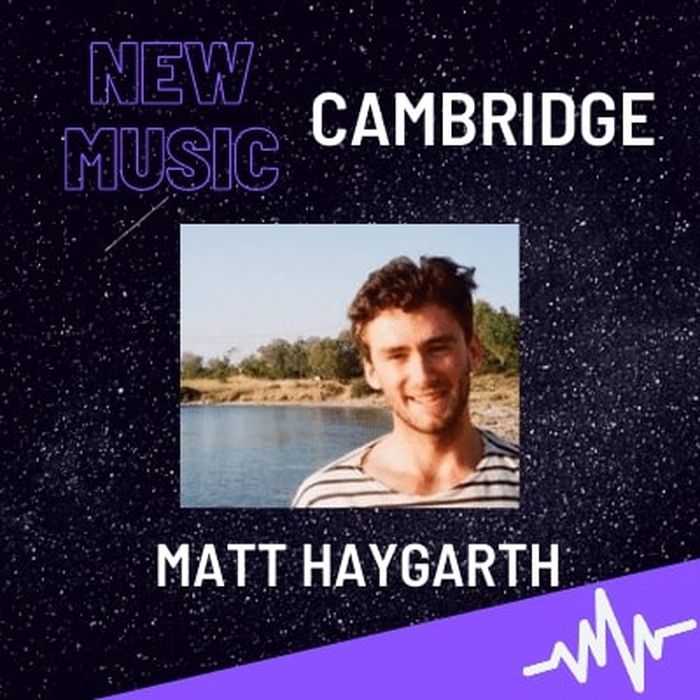Transitions: Victoria at New Music Cambridge
CamFM presenter Kate Granlund talks to second year music student Victoria Longstaff about her EP, her experiences as a trans woman in music, and where she finds inspiration

This week on New Music Cambridge we spoke to Victoria Longstaff, a second year music student at Clare College, about her EP Transitions, her experience of being a trans woman in music, and why stealing from other musicians can sometimes be good. The EP was written over the course of one day, by ‘2 Non Men’, a duo composed of Victoria and her friend Solomon Linington, who she clarifies “is actually a man” but “very much ‘technically’ so”.
The EP combines soulful vocals and tongue in cheek lyrics. It contains musings on topics such as technology, identities and trees. The second track, Morpheus Orpheus directs its anger at the US government with lines such as “The Reagan administration ignored the AIDS crisis / The CIA is responsible for the formation of ISIS”. However, this is one of the more serious moments in an EP that is often sardonic.
I find her voice very emotionally charged and powerful, but Longstaff is quick to maintain that the music is ultimately pinned down by irony. The lyrics had to be made quickly, and moments such as “call me by your name / And I’ll call you by my name” in Soul Boat, it transpires, were taken not from the film but from the bio of a friend’s Facebook profile and used as lyric fillers. Yet there is something artistic that materialises in the fleeting and hurried experience of writing a song, from collaging small snippets of the everyday.
“Longstaff is quick to maintain that her music is ultimately pinned down by irony.”
We discuss her experience of writing and singing music as a trans woman. The subject of being transgender rarely reveals itself in her music, except for in the particularly raw moments of Morpheus Orpheus- “glorious, notorious, I got dysphoria”. The irony that partly underpins a lot of her music stems from always having to look at it from a critical perspective. As a trans artist, she describes the feeling of “coming to music as an outsider”. She explains how “there’s established conventions for writing sincere music and there’s really not a place for me in it”. To find her way around this, she writes a lot of music about other music, rather than writing about personal experience. Longstaff approaches music in a way that is shaped by constantly being in close dialogue with the music of other composers, and at the same time feeling that there is no musical template, or clear set of rules for how she, as a trans woman, is supposed to write music.
Her track Zefiro Torna (not on the EP) is an adaptation of Monteverdi’s piece onto the synths. She tells us: “I think people put originality on a huge pedestal, I don’t think it’s that important.” Instead, she stresses the importance of “interpretation, reinterpretation, amalgamation”. The whole EP feels as if it has benefitted from Longstaff’s ‘magpie’ style of making music. She honours the act of listening to music and taking from it, which in turn elevates her songs. These influences can be seen throughout the EP.
“She honours the act of listening to music and taking from it, which in turn elevates her songs.”
The opening track, Bendy Tree has influences in Jimi Hendrix and KT Tunstall that materialise in the guitar and lyrics respectively, whilst Morpheus Orpheus takes influence from the band Rage Against The Machine. After all, what is more personal and original than creating a new work of art out of the music that has shaped you? The idea that musical ideas should be recycled and redone is a humbling and yet also liberating one. As Longstaff says, “even just sharing a song that you like is itself a creative act”.
We ask Longstaff about her experiences of writing and performing. She tells us how it was harder to write over lockdown: “I find it a lot easier to write music when there’s someone else there, and I’m not just in my own head”, and how she hasn’t quite yet found a way to perform in Cambridge. At the moment, posting her music on SoundCloud is a rewarding experience: “it really is just music that I have enjoyed making, that I want to share with my friends, or anyone who is interested.”
At the end of the show, we asked Longstaff some quickfire questions:
If you could only listen to one song for the rest of your life, what would it be?
‘Symphony of Psalms’, Stravinsky
What musical event would you travel back in time to see?
That time Bach had a fight with a bassoonist
What musician, dead or alive, would you most like to meet?
Steve Reich
Favourite musical key signature?
I have slight synesthesia related to key signatures, so for me G major and D major remind me of the woods and the colour green, whereas F major has orange vibes
Listen to Victoria’s Music on Soundcloud: 2 Non Men, Transitions
Tune into New Music Cambridge on Cam FM 97.2 every Tuesday at 7
 News / SU reluctantly registers controversial women’s soc18 December 2025
News / SU reluctantly registers controversial women’s soc18 December 2025 Features / Should I stay or should I go? Cambridge students and alumni reflect on how their memories stay with them15 December 2025
Features / Should I stay or should I go? Cambridge students and alumni reflect on how their memories stay with them15 December 2025 News / Dons warn PM about Vet School closure16 December 2025
News / Dons warn PM about Vet School closure16 December 2025 News / Cambridge study finds students learn better with notes than AI13 December 2025
News / Cambridge study finds students learn better with notes than AI13 December 2025 News / Uni registers controversial new women’s society28 November 2025
News / Uni registers controversial new women’s society28 November 2025










